Click here to view more from Gastroenterology Data Trends 2024
Cannabinoids and Digestive Disorders
Jami A. Kinnucan, MD, AGAF, FACG
Senior Associate Consultant
GI Practice Chair
Director of Digital Health and Practice Integration
Division of Gastroenterology and Hepatology
Department of Medicine
Mayo Clinic
Jacksonville, Florida
Disclosures:
Serve(d) as a director, officer, partner, employee, advisor, consultant, or trustee for: Abbvie (Advisor, consultant); BMS (Advisor); Fresenius kabi (Advisor, consultant); Janssen (Advisor); Takeda (Advisor, consultant); Pfizer (Consultant)

Complementary and alternative therapies are gaining interest in the gastrointestinal (GI) community. Up to 27% of adults in the United States and Canada report using cannabis for medical reasons, and up to 39% of patients with inflammatory bowel disease (IBD) report past use for symptom management.1-3 Significant questions and challenges still remain surrounding the use of cannabis in GI disorders, including its varied legalization status globally.4,5
Cannabinoids can be broken down into endocannabinoids (naturally occurring substances within the body) such as 2-arachidonoylgylcerol (2-AG) and anandamide (AEA), which act within the body at the cannabinoid receptors (CB) CB1 and CB2.6 There are also plant-based cannabinoids (phytocannabinoids) that include the most commonly known cannabidiol (CBD) and delta-9-tetrahydrocannabinol (THC). In addition, there are synthetic cannabinoids (manmade molecules that resemble THC or CBD), and synthetic receptor antagonists and agonists (manmade molecules that act directly at the cannabinoid receptors).
Studies have assessed cannabinoid use in many GI conditions—most notably IBD and irritable bowel syndrome (IBS)—however, medical marijuana use has only been approved in some states for Crohn’s disease or ulcerative colitis.4,7,8 In patients with IBS, there have been conflicting results, with a recent clinical trial of a synthetic CB2 agonist showing no significant change in abdominal pain scores.9 In patients with IBD, results are also varied, with some trials showing improvement in clinical measures but not endoscopic remission.10 These varied results could be due to differences in the formulation of cannabinoids studied and routes of administration.
While the endocannabinoid system is of high interest within the GI community due to its therapeutic potential, many challenges remain, such as legalization, widely varied compounds and doses of active ingredients, and a lack of large, high-quality randomized studies.5,11,12 More research is needed to delineate the exact mechanism to best interact with the endocannabinoid system, and what GI disease states might be most affected.
1
-
" style="pointer-events:none;cursor:default;">
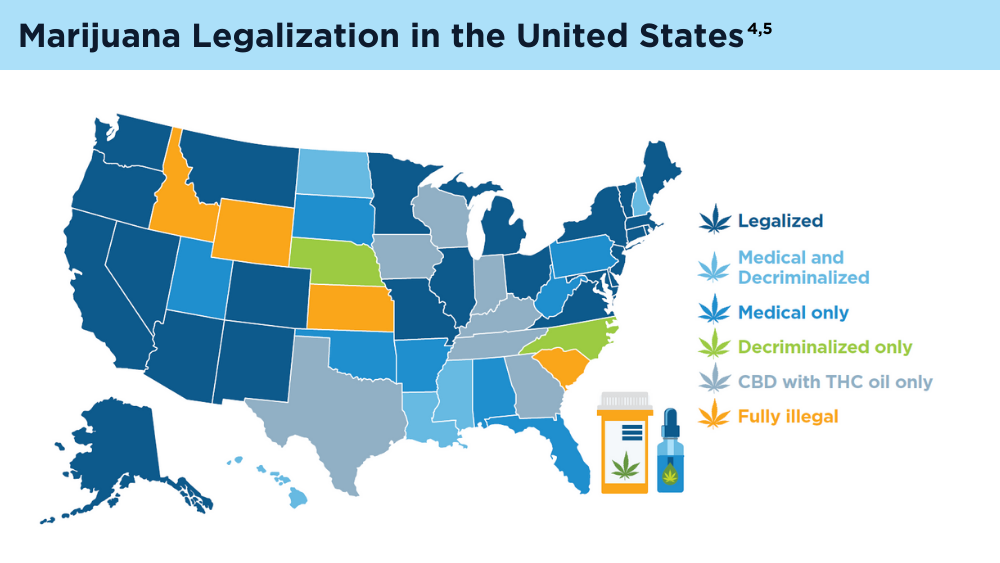
The recreational use of cannabis is illegal in most countries outside of the United States and Canada, with some moving toward decriminalization and medical marijuana legalization.
CBD oil can be made with or without THC. This map refers to CBD oil with THC. CBD oil with THC is illegal in states marked as "Fully Illegal." All statuses are subject to state limits and CBD oil may be legal only up to 0.5% THC or marijuana may be legal only up to 1 ounce.
-
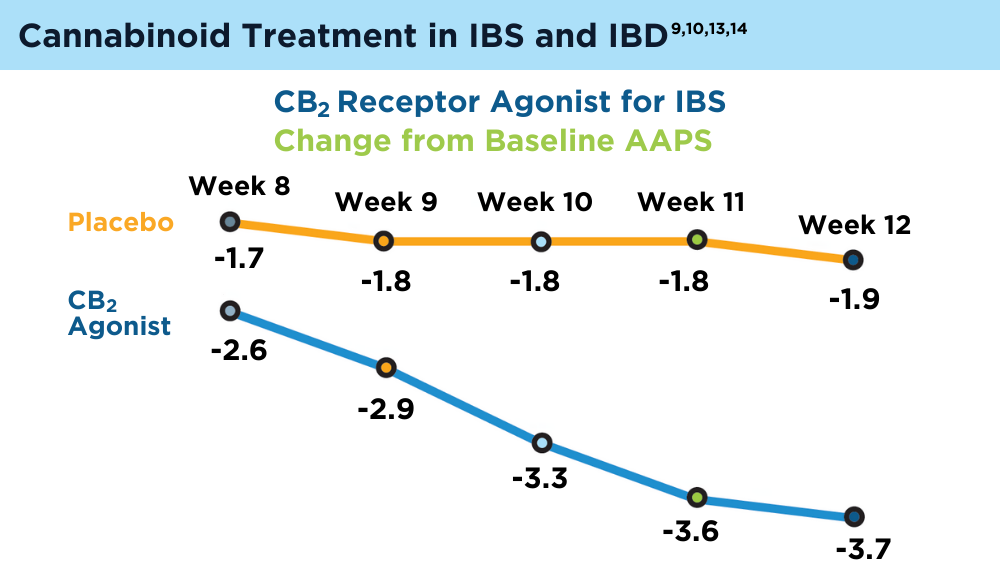
Although the weekly changes in average abdominal pain scoresc were similar across study groups, CBD use showed significant improvement in a subgroup of patients who had moderate-to-severe pain at baseline. When separated by subtype, patients with IBS-C showed significant improvement taking CBD, while IBS-D patients did not.
AAPS, Average Abdominal Pain Score; Scale ranges from 0 to 10 where higher numbers represent worse pain.
IBS-C, IBS with constipation; IBS-D, IBS with diarrhea
-
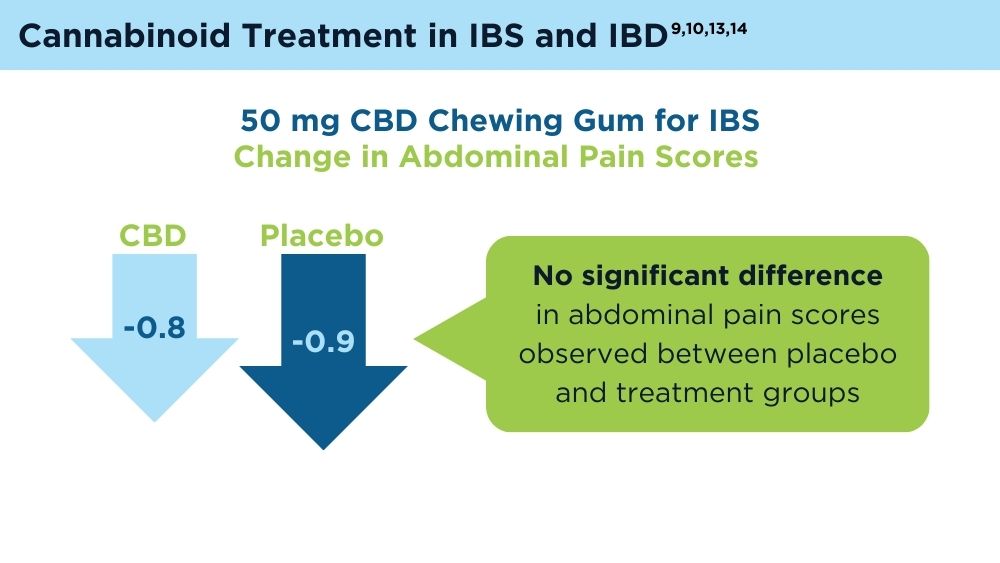
Visual analog scale device with subjective pain faces and a 0-10 scale was used for abdominal pain score.
-
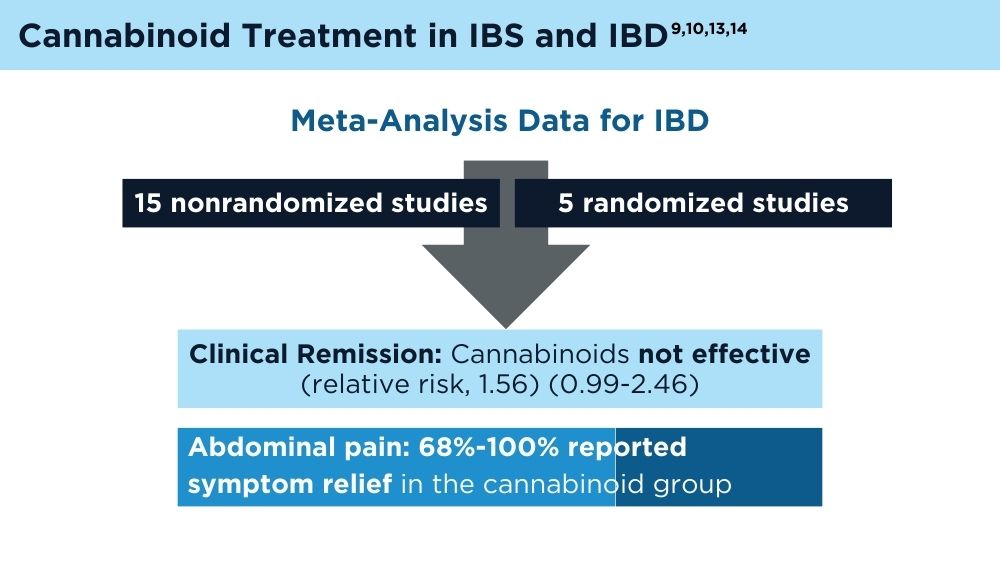
-
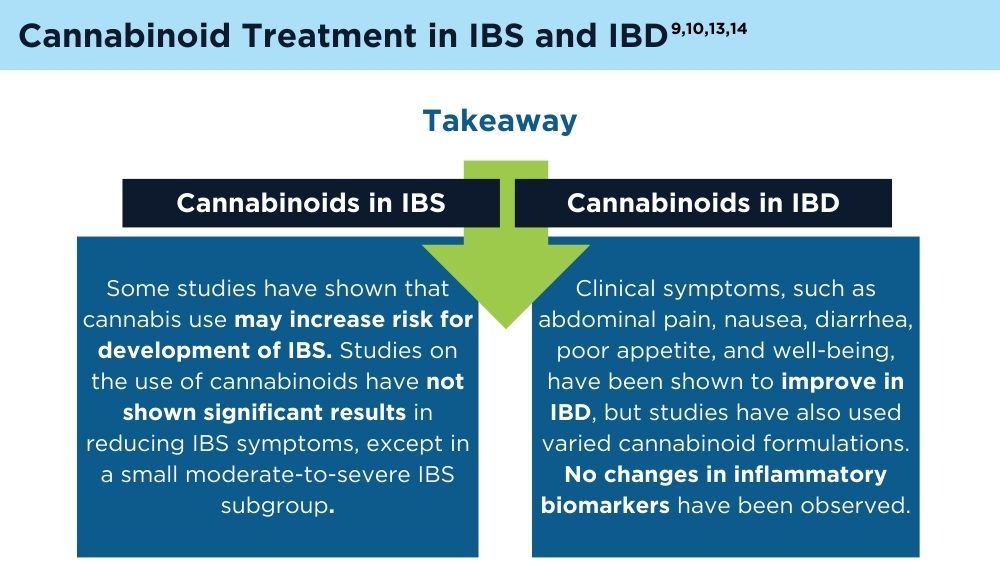
-
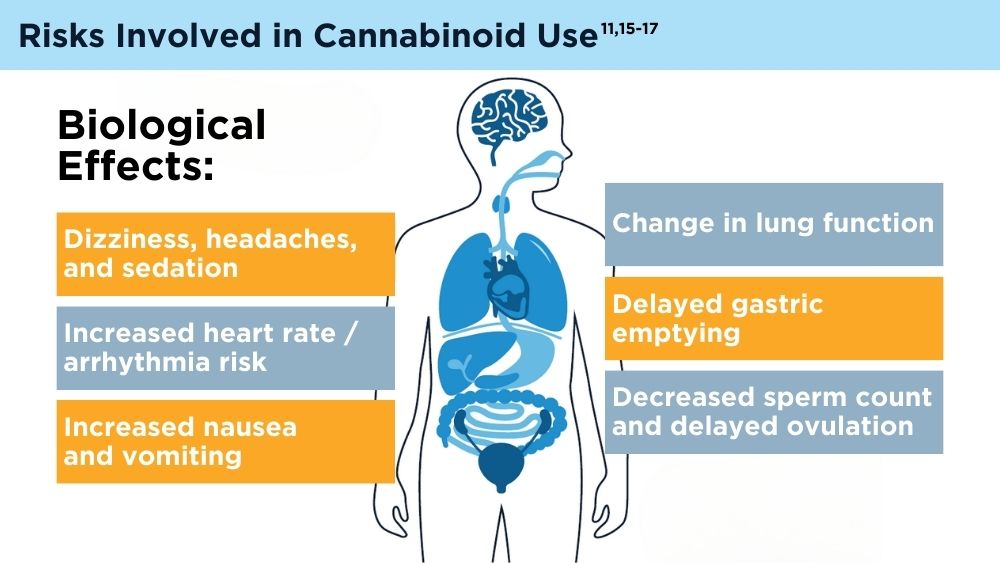
-
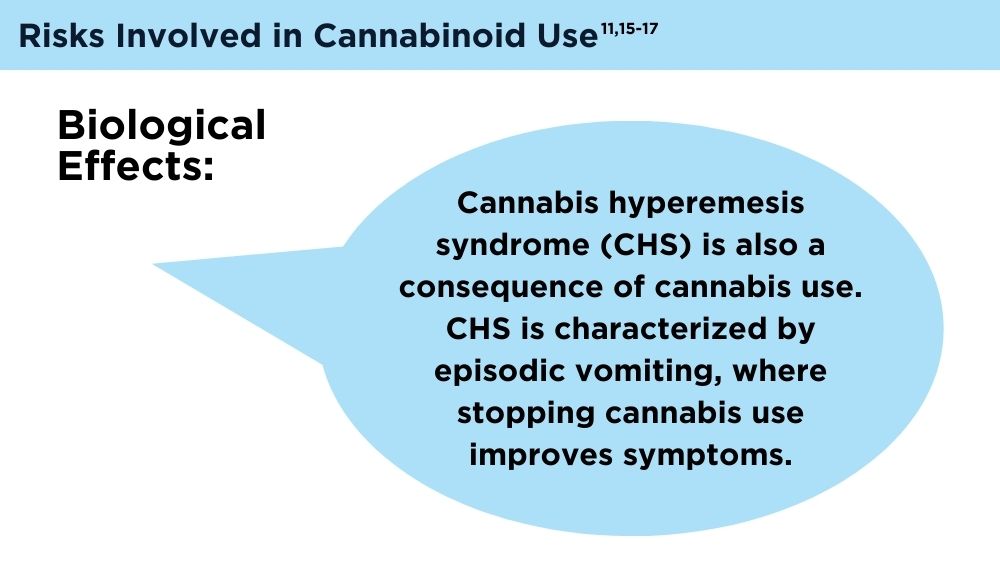
-
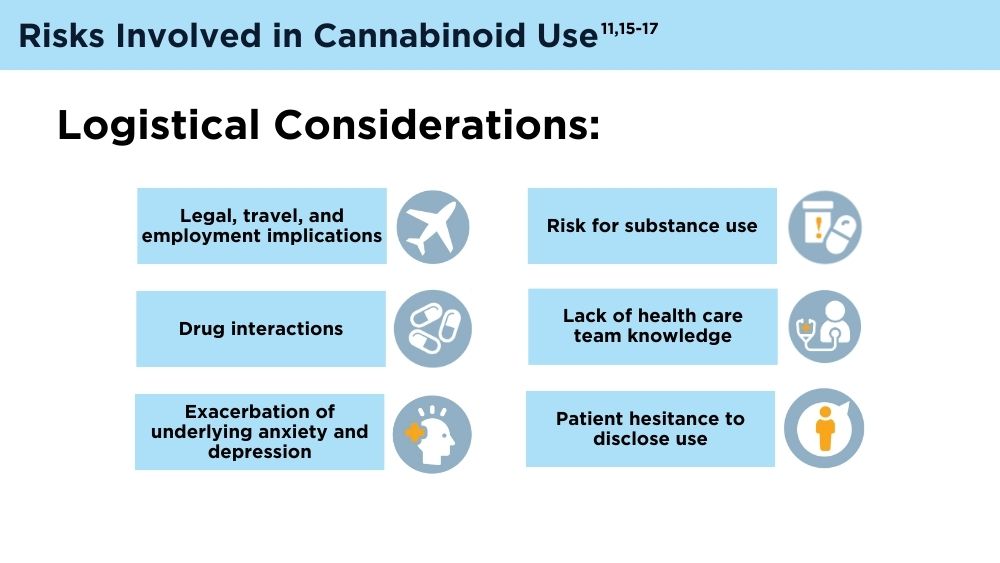
More IBD & Intestinal Disorders News
- Does Bezlotoxumab Boost FMT Efficacy in IBD Patients With Recurrent CDI?
- Angiotensin Receptor Blockers May Lead to Worse Outcomes in Celiac Disease
- Common Crohn’s Immune Response to Gut Bacteria Suggests Therapeutic Target
- Guselkumab Efficacy in Crohn’s Disease Unaffected by Prior Biologic Use
- IBS: Understanding a Common Yet Misunderstood Condition
- Breath Gas Patterns Predict Response to Low FODMAP Diet
- Ultraprocessed Foods Associated With Relapse Risk in Crohn’s Disease
- Live Rotavirus Vaccine Safe for Newborns of Biologic-Treated Moms With IBD
Irritable Bowel Syndrome and Sleep


